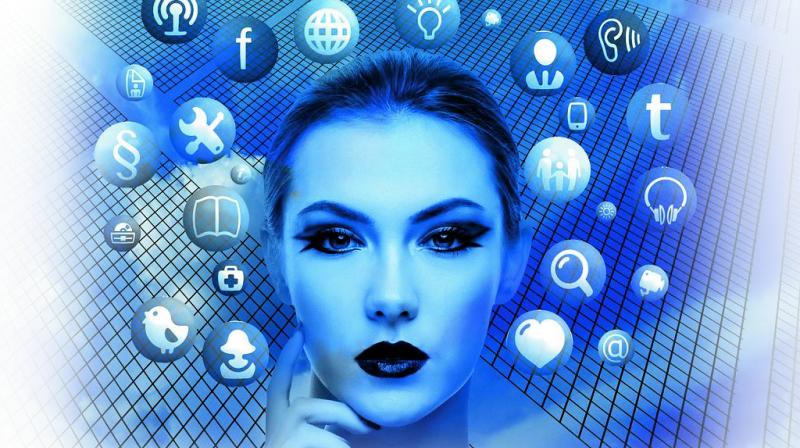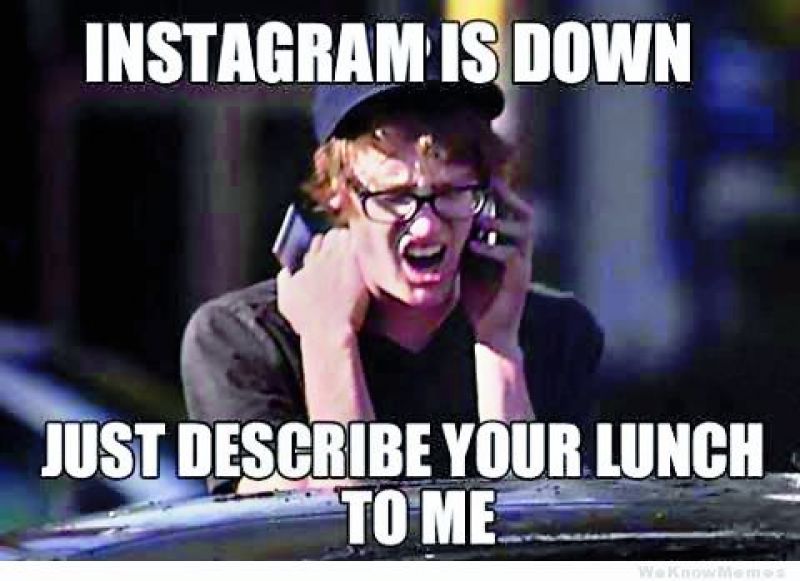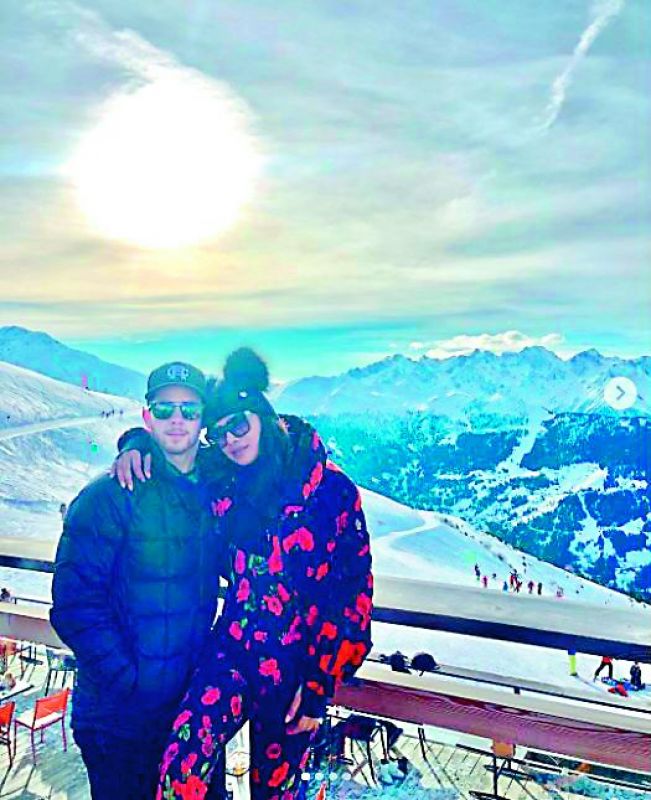Suffering from instagramxiety?
The negative impact of Instagram has led to the coinage of the term Instagramxiety; a state of anxiety triggered by a post seen on Insta.;

A few weeks ago Instagram rolled out a new feature that allows users to monitor the time they spend on the app. This comes in the wake of several NPOs reporting that the picture-sharing social media platform has scored the least among its competitors in terms of user’s mental health. “Seeing friends constantly on holiday or enjoying nights out can make young people feel like they are missing out while others enjoy life,” stated the #StatusOfMind report (based on surveys in the UK). “These feelings can promote a ‘compare and despair’ attitude,” the report goes on to say.

As of October, 2018 over 71 million users on Instagram came from India, second only to the United States, where over 121 million users upload and share content of their ‘instagram-worthy’ lives on a daily basis.

The fact that 61 per cent of all Instagram users globally are between the ages of 18 and 34, makes it even more alarming. Hundreds of millions of millennials are spending at least two hours per day, often more, on Instagram.
A Bengaluru-based psychologist who’s been the shrink to some stellar names in Bollywood, spoke to us under conditions of anonymity, “Social media has had a definite impact on mental health. There’s now an avenue for people to look into the personal lives of their friends, foes and their exes. They subliminally compete with one another to out-do what the other person has put up. It’s become a virtual competition which has an impact on mental well-being. Among all other social media applications, Instagram is the most addictive, since it requires the least amount of reading. Youngsters don’t need to analyse, they just judge the image uploaded. Sometimes this can have a positive impact and sometimes a negative one. Too much comparing oneself to others can often cause anxiety, and is nothing new.”
Advising on physiological and psychological triggers that cause anxiety, she goes on to share, “There are many things that can be contributing to your anxiety, too much coffee, tobacco, alcohol, not enough sleep, hormonal imbalance, a stressful work environment, and personal issues. Social media addiction only adds to these, but can have a much quicker trigger than anything else, since it’s a direct mental stimulant. My advice would be to take some time off and stay away from it for a few days to see if that makes a difference. If you feel it’s bettered your anxiety, then start organising your online activity, limit the time you spend every day on social media apps. Don’t rush to your phone at every opportunity just to look busy.”
Dr Maximilian Schubert, the Medical Director at Viva Mayr, Altaussee, a favourite health clinic of celebs like Deepika Padukone, Karan Johar and Anil Kapoor, says, “There is a marked behavioural variance in how different generations use technology. The older a person, the less likely he or she is to get addicted to social media. The new generation of millennials however are particularly susceptible to it, since they’ve grown up around iPads, Facebook and Instagram.” The doctor also explains that one of the main objectives of a person addicted to Instagram is instant satisfaction. “In a world where building confidence is difficult, Instagram as an app offers instant gratification in the forms of views and likes. This is superficial, and lasts only for a short time. People who usually upload hundreds of photos and over-do the sharing are yearning for constant recognition, because they’re trying to mask an inferiority or failure in their lives. Eventually this also leads to fuelling falsehoods, portraying a diff
erent personality of themselves online as opposed to in real life. This is very risky for one’s mental health.”
Supriya Joshi, a young stand-up comic who has written for AIB, ScoopWhoop and starred in several Buzzfeed videos, runs an Instagram account called supaarwoman, with over 16,500 followers. Her videos and updates usually deal with body positivity, make-up tutorials and her love for Korean Pop.
“I feel Instagram triggers anxiety very easily for people who are already predisposed to it,” she says. “For women especially, being constantly bombarded with ‘a particular’ body type or ‘face type’ can be disturbing. It’s important to be mindful of what and who you follow on Instagram. Know that Instagram is a person’s life’s highlight reel. It’s not their entire reality. So it’s easy to start comparing yourself to others and feeling bad while using it.” Through her profile on Instagram Supriya often counsels fellow users on how to feel better about themselves, instead of falling prey to a social media environment that is tailor-made to bring down those who don’t necessarily ‘fit into’ the ideal Instagram worthy-lifestyle.
The negative impact of Instagram has led to the coinage of the term Instagramxiety; a state of anxiety triggered by a post seen on Insta. “I do think that the internet in general causes anxiety,” says Sara Sham, the scion of Mumbai-based interior firm Essajee (designers for the Ambani family and The Taj Mahal Hotel Mumbai), “Also a host of other psychological issues, because you are spending four to five hours a day on your phone comparing your life to others. Envy, jealousy, anxiety, all because you can’t compete with sitting in a private jet or sport the latest Louis Vuitton. Earlier we didn’t have these many places to see other people living this lifestyle. Now there’s Instagram.” With close to 3000 followers on her personal account and more than 10,000 followers on her official Instagram page, Sara’s profile displays pictures of her travels and her design inspirations, “I don’t share a lot of my life, if travelling I’ll put up a few posts, otherwise highlights or happy moments. Instagram can be a good place for some people since there are so many bloggers and Instagrammers who talk about body issues, cellulite, body dysmorphic disorder, then there are others who portray a perfect life, a fake illusion. It’s important you follow what gives you positivity.”
Others like Rajput Prince, Anirudh Bharatpur, a young hotelier and luxury connoisseur, confess to being all out addicted to the app. “I admit, Instagram is the first thing and the last thing I see every day. A picture speaks a thousand words, so Instagram grabs my attention a lot more than Facebook, Snapchat or Twitter. I’m guilty of spending more than two and a half hours every day on the app. It’s just so addictive!”
Anirudh’s Instagram account is only for his close friends i.e. not ‘public,’ where one can see pictures of him with Rajput royals, ministers and a #throwback picture of a much younger him sitting next to Prince Charles. “I’m guilty of it all,” he says, “I guess that’s how we have all been conditioned to share on Instagram. I can understand that some people can feel peer pressure and experience anxiety because the app is saliently competitive. It’s important to be aware of its pluses and minuses.”
“Yes, sure there’s a dopamine rush when you see the number of people who have viewed or liked your posts, but that doesn’t mean it should be uploaded with the aim to cause envy among others.”
Thanks to phone dependency and addiction to social media apps, millennials are staring more and more at their screens in an attempt to look busy, “‘I’m so busy’ has replaced, I’m doing well,” says the psychologist from Bengaluru. “Our society’s value system has shifted in such a way that appearing engrossed and ‘busy,’ is the equivalent of appearing ‘fine’. If you’re not immersed in activity you are either unsuccessful or a ‘loser’. This way of thinking is detrimental to mental health. You can’t keep looking into your phone every time you find yourself alone. Look around, talk to people face-to-face… stop running away into this virtual world to escape the reality of life.”
Affirming that Instagramxiety is generally a millennial issue Queenie Singh, with almost 75,000 followers on her Instagram page says, “I don’t feel any pressure personally to be on Instagram. I think I’ve outgrown all that.” Jewellery designer and socialite, Queenie is a veteran at understanding how society works, her insta page boasts of pictures with Ricky Martin, cricketer Virat Kohli, the late Sridevi… a who’s who of the world’s elite, and a jet-set lifestyle to make any A-lister turn green. “I feel Instagram does promote living a certain lifestyle to an extent. You are aware of what everyone is up to. Workwise, it keeps things healthy and competitive. The important thing is to make sure that your post is a good expression. I don’t think I spend more than five to ten minutes in a day on Instagram, sometimes maybe even less!”
Since, it’s a burgeoning phenomenon, the proof that Instagram is a general trigger for anxiety is only growing day by day, with researchers and studies adding material reaffirming that the app can cause stress and addiction. “I personally feel this is a fad,” says Sara Sham to sum it up, “It’ll be like MySpace, ICQ, MSN Messenger… we’ll one day look back with nostalgia about how addicted we were to Instagram and how it used to be so competitive. Much of it is an illusion, influencers buy followers, companies give freebies to them, they are basically advertising products, passing it off as their actual lifestyle. Something new will come along and we’ll forget all about it.”
Many A-list actors post pictures of themselves while on a vacation or otherwise — enjoying the luxuries of life — regularly on Instagram. As the Bollywood celebrities have lakhs of followers on the social media, these posts can act like anxiety trigger for several people, including their own lesser-known colleagues, who don’t necessarily fit into the ideal Instagram worthy-lifestyle.

